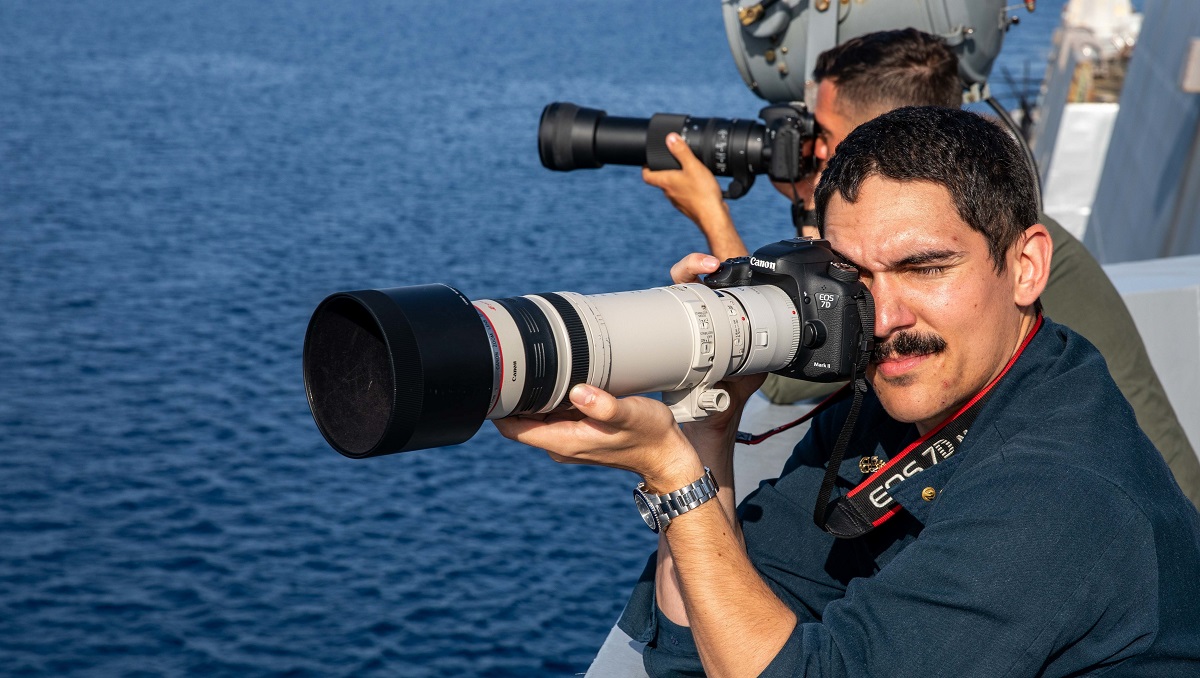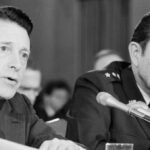
Retaining a qualitative advantage over great power rivals entails intelligence practitioners at all levels who understand the military and nonmilitary underpinnings of adversaries’ capabilities or intentions.
As the United States’ technological advantages recede, people will remain its best “weapon” to outthink opponents. Yet, the naval intelligence community’s (NIC) recruitment, education, training, and billeting paradigm is not adequate for great power competition. Russia and China can now challenge the United States across multiple domains, using all instruments of power. Meanwhile, NIC assessments of rivals’ capabilities focus on military capabilities, with scant attention to nonmilitary, historic, or cultural factors, which often drive decision-making. This narrow focus reflects the NIC’s traditional cultivation of broad military analysts. A great power competition context demands more holistic analyses, which means the NIC must realign its recruitment, training, education, and billet structure to develop the community’s understanding of nonmilitary aspects of its operating environments.
Retaining a qualitative advantage over great power rivals entails intelligence practitioners at all levels who understand the military and nonmilitary underpinnings of adversaries’ capabilities or intentions. Such insight can speed friendly leaders’ decision-making. Transient jobs in disparate regions preclude many analysts from developing such needed insight. The NIC should therefore expose personnel to tactical, operational, strategic, and interagency billets that focus them on great power competition rivals’ military and nonmilitary features. Such exposure must then be reinforced with education and training.
Education and training opportunities between changes of duty stations rarely marry up with a Sailor’s forthcoming assignment or build on experience gained during a previous one. Such a fragmentary approach leaves NIC personnel with at best an intermediate level of knowledge or cultural understanding of America’s adversaries.
In 1996, years after the Cold War’s end, Naval Intelligence reviewed its “core competencies” and instituted a “generalist,” approach for the community, to support an easier assignment process, a better officer promotion system, and a better alignment with the Navy’s needs. Peer competitors’ emergence necessitates that the community now focuses where and how it allocates and develops its personnel
Chinese and Russian capabilities now match, and in some cases exceed, U.S. capabilities. This is a paradigm the United States has not experienced since the Cold War. Compounding this unfavorable environment is the cyberspace and space domains expansion, which further strains intelligence resources. The NIC’s disconnected billeting, education, and training structure exacerbates the community’s inability to truly understand U.S. peer competitors and to give U.S. decision-makers advanced insight into enemy intentions and capacity. The community should anchor its recruiting, billets, education, and training on strategic regional threats going forward and develop individuals with geographic expertise. Furthermore, Naval Intelligence could build “off ramps” at certain career points for individuals who wish to shift regional or threat foci, minimizing disruption to regionally centered training and career tracks.
Recruiting People with Requisite Knowledge about U.S. Adversaries
Naval Intelligence’s first step to better position itself for great power competition is recruiting and retaining people with relevant cultural, educational, or experience-based backgrounds. This would include higher education graduates who studied great power competition, regional, or transnational threats within the international community. Those who spent four to eleven years studying a country or region have a wider understanding of potential and current foes than most of their peers. International studies typically center on nonmilitary and societal factors, which are often blind spots in Naval Intelligence.
Ideally, the community should also recruit from among people who have spent a year or more in China, Russia, Iran, or North Korea. Such people could offer the NIC more accurate cultural, political, and economic insights. However, a robust U.S. economy and a small pool of young Americans who are fit and willing to serve makes all recruiting difficult. Naval Intelligence could enact a sign up and retention bonus program akin to what the Service has for the naval intelligence reserve and naval aviation. Between the two programs, the Navy pays nearly $200 thousand dollars in bonuses to eligible sailors. Active-duty Naval Intelligence recruiting needs a similar program to reform its workforce’s training and billeting structures for great power competition.
Refining and Expanding Initial Intelligence Training to Prepare for Complex Threats
The NIC should modify initial training to interweave basic and intermediate instruction on great power competition and regional threats with foundational intelligence, tactics, techniques, and procedures (TTPs). The operational intelligence brief should remain the courses’ centerpiece, but should include an expanded rationale for enemy ship and aircraft movements. According to a recent instructor, classes now center on intelligence functions and competitor platforms but offer little nonmilitary or decision-making knowledge about adversaries. Military intelligence practitioners’ primary trades are studying and evaluating enemy platforms, weaponry, and localized patterns of life. Yet, current training provides little Chinese, Russian, Iranian, or North Korean political, historical, economic, or societal insight into how or why such states might use the military instrument of power. A four-week discussion regarding each of these countries’ political, historic, economic, and societal aspects would reinforce the knowledge of those analysts with backgrounds involving these countries and could introduce pertinent information elements to new intelligence members. The courses could hold the four-week block after teaching fundamental intelligence TTPs and intertwine these TTPs into country-specific scenarios.
Tailored scenarios should demonstrate how adversarial nonmilitary sources of power can dictate military operations. Students would produce assessments using intelligence TTPs. The courses’ remaining blocks of instruction could incorporate teaching points or scenarios based on great power competition, regional, or transnational threats, to reinforce the great power competition-dominated operating environment analysts will face.
Beyond basic intelligence training, Naval Intelligence should require some form of Naval Post-Graduate School great power competition education before promotion to lieutenant or petty officer first class.
Reexamining and Restructuring the Billet Structure
Naval Intelligence billeting regularly shifts personnel between Navy and joint assignments, at differing levels of warfare. This inhibits analysts’ development of both geographic and functional expertise. An attempted remedy was to select for great power competition knowledge using promotion board convening orders. For example, the fiscal year 2022 (FY22) and 2023 (FY23) Navy Active Duty Captain and Commander Line Promotion Board placed preference on officers with multiple Indo-Pacific tours. The goal was to focus them on Chinese political-military affairs. Though a start, the NIC must not focus such efforts on China alone, at the expense of other great power competition or regional adversaries.
Naval Intelligence should permanently assign members to focus on a specific great power competition or regional threat country, then develop these members’ expertise with assignments going from the tactical to the strategic level of warfare, in order. A sequential movement upward through the levels of warfare would develop analysts’ understanding of the military’s role at each level and would enlarge, refine, and bolster their operational intelligence TTPs. It would also give them insight into a focus country or region’s nonmilitary contours, to mature their overall understanding of the operating environment.
Naval Intelligence should then also reinforce the development of regional and country specific understanding through germane educational and training opportunities.
An example of a level of warfare-based career evolution could be an ensign or a third-class intelligence specialist (IS) who performs all their operational naval tours on the East Coast with a Russia-focus, through their respective commander or chief ranks. An individual could start their intelligence career with a squadron supporting an air wing, and have an intelligence concentration on dissecting Russian air-defense systems. After completing a shore tour at U.S. Second or Sixth Fleet, the individual could remain in place or return to the East Coast and assume a destroyer squadron position as a lieutenant or a second-class IS, who examines Russian activities. After three years’ service at a combat support agency or in European Command, the analyst could become a carrier strike group deputy intelligence officer or an IS Chief in the carrier intelligence center, who studies Russian Northern Fleet activity, for example. From there, a commander could complete a milestone tour as an East Coast carrier strike group intelligence officer, a Second or Sixth Fleet maritime intelligence operations center director, a naval special warfare group intelligence staff officer (N2) or perform attaché duty in or near Russia. Such a path would simultaneously cultivate and refine military and nonmilitary expertise, such as intelligence TTPs, naval power employment, and great power competition or regional threat insights. Naval Intelligence should then also reinforce the development of regional and country specific understanding through germane educational and training opportunities.
Maximizing Formal Education and Intermediate and Advanced Training Opportunities
Current NIC education and training do not reinforce or extend individuals’ previous knowledge or experience. More often than not, NIC instruction does not adequately prepare analysts for current or future assignments. The Naval Post-Graduate School (NPS), Naval War College, and National Intelligence University (NIU) offer a plethora of geographic and functional areas to study. However, the community only intermittently connects a person’s area of study to reinforce or enhance prior operational experience, or to prepare them for their future occupation. The community should require officers or enlisted personnel who attend these schools to concentrate their studies on their assigned great power competition or regional threat country. NIC assignment managers should verify compliance with this requirement by having students submit transcripts and thesis projects to inform billeting decisions. Moreover, these analysts’ time spent at academic institutions with colleagues focused on the same country or region could enhance discussion between officers and enlisted personnel, with a focus on the same target set, perhaps resulting in innovative and unique approaches for examining U.S. great power competition and regional adversaries.
Formal education opportunities offer a possible “off-ramp” for individuals wishing to change their country focus. Typically, officers go to NPS or NIU as lieutenants and enlisted personnel go to NIU when they reach E-5 or E-6, after tactical- and operational-level tours. A shift in country concentration while in school would allow them to study a different country for a year to 18 months to familiarize students with their new focus areas before the Navy assigns them to a billet. Naval Intelligence Community managers could assign a quota to those able to change their concentration, to minimize any disruption to building the community’s regional expertise.
Concurrent with formal education, Naval Intelligence should modify the community’s training to reflect the great power competition and regional threat setting. Curriculum adjustment would entail Naval Intelligence’s collaboration with the Center for Naval Information Warfare training, to formulate realistic, relevant, and agile great power competition-focused intelligence courses. Naval Intelligence should also leverage the U.S. Intelligence Community, sister service, and interagency training courses to widen and intensify its drive to develop regional expertise. Moreover, the community should encourage individuals to become adjunct instructors at these various institutions, to enable them to bring curriculum with them to Fleet concentration areas, thus allowing a greater audience to receive training. Adjunct instructors could inform the curriculum and tailor the training to the great power competition’s maritime environment.
Conclusion
The NIC has an opportunity to better prepare itself for great power competition by examining and improving how the community recruits, trains, assigns, and educates its personnel. Allowing intelligence officers and ISs to attain graduate-level knowledge about a particular challenge would enhance the community’s operational intelligence capacity and capability. Such focus would shorten the time it takes an intelligence professional to become familiar with a new adversary or region, thus permitting more time to lead and mentor others. Unlike the terrorists of September 11, 2001, China and Russia pose existential threats to U.S. interests. Yet, the community spent years developing counter-terrorism expertise. Naval Intelligence does not have this luxury with China and Russia, which continue narrowing U.S. advantages in a potential high-stakes fight. A community insistence on developing country- or regional-specific intelligence experts would enhance and refine predictive assessments of likely enemy intentions, rationales, or actions, and would buy commanders more decision-space to lead in great power competition and other contests.
Todd Moulton is a Lieutenant Commander in the U.S. Navy and the officer in charge at Joint Reserve Intelligence Center near Detroit, Michigan. He is also an Information Warfare (IW) Warfare Tactics Instructor (WTI). He is a graduate of the Air University, National Intelligence University, Seton Hall University, and University of Michigan.
The views expressed in this article are those of the author and do not necessarily reflect those of the U.S. Army War College, the U.S. Army, or the Department of Defense.
Photo Description: Chief Intelligence Specialist John Minor, foreground, assigned to the San Antonio-class amphibious transport dock ship USS Arlington (LPD 24), and U.S. Marine Corps Cpl. Henry Rodriguez, attached to the 22nd Marine Expeditionary Unit (MEU), take photographs as part of the ship’s nautical or otherwise photographic intelligence and exploitation team, May 26, 2022. Arlington and embarked elements of the 22nd MEU are part of the Kearsarge Amphibious Ready Group-22nd MEU team, and are on a scheduled deployment in the U.S. Naval Forces Europe area of operations, employed by U.S. Sixth Fleet to defend U.S., allied and partner interests.
Photo Credit: U.S. Navy photo by Mass Communication Specialist 1st Class John Bellino





Much like today, yesterday in the Old Cold War, this, also, was considered to be a period of “great power competition.”
But, unlike today, yesterday in the Old Cold War, we saw this great power competition (and thus the intelligence gathering, analyzing and studying requirements relating to same?) in more specific terms; these being, in terms of (a) the Soviets/the communists seeking to achieve revolutionary change (in the name of communism) both at home and abroad, and in terms of (b) the U.S./the West — and other smaller countries also — thus commonly threatened — seeking to contain, and to roll back, these such revolutionary change efforts.
Question:
Given that, in the New/Reverse Cold War of today, now it is (a) the U.S./the West that seeks to achieve revolutionary change both at home and abroad (in our case, in the name of such things a market-democracy) and thus (b) it is such great power nations as Russia and China — and other smaller nations also — who — thus commonly threatened — seek to contain, and to roll back, these such revolutionary changes;
Given this such — MUCH MORE SPECIFIC — description of “the war that both we, and our opponents, are embarked upon,” should not — today also — such things as intelligence gathering, analyzing and studying be done from this such — much more specific than simple “great power competition” — point of view?
[Note: Should you consider that achieving revolutionary change in countries such as China and Russia, etc., is not what the U.S./the West is all about today, then consider the following from the “Just Security” article “Putin’s Real Fear: Ukraine’s Constitutional Order” by Sir Philip Bobbitt and Viola Gienger:
“In the information age, a state of terror such as the one that Putin’s Russia has become, cannot countenance states of consent, especially next door. It is Ukraine’s constitutional order — with its independent (though still troubled) judicial system, freedom of the press, multiparty politics, largely legitimate elections, vibrant civil society, and general respect for human rights — that Putin cannot tolerate, lest it provide too tempting an example for democratic activists in his own country who have vehemently opposed him at great risk to their lives and to the public in general that shares so many ties to the people in Ukraine. The “peaceful coexistence” of the Cold War is, in this respect, not acceptable to Putin. …
So Putin’s war is a consequence of his fear that Russia as it is today will inevitably slip from his grasp and that more democratic-leaning leaders there, not just those in Ukraine, will one day petition to become members of NATO and that it will become a state of consent. If the West can protect Ukraine — with advanced anti-ship, anti-aircraft, and other defensive weapons, with a sustained airlift and land convoy of food and medicines, with global economic ostracism of Putin’s regime — that day will come.”)
In Hans Morgenthau’s Old Cold War paper “To Intervene or Not to Intervene,” Morgenthau was careful NOT to describe the conflict between the U.S./the West — and the Soviets/the communist back then — in such incomplete, erroneous — and thus grossly misleading — terms as “great power competition” alone:
“The United States and the Soviet Union face each other not only as two great powers which in the traditional ways compete for advantage. They also face each other as the fountain heads of two hostile and incompatible ideologies, systems of government and ways of life, each trying to expand the reach of its respective political values and institutions and to prevent the expansion of the other. Thus the cold was has not only been a conflict between two world powers but also a context between two secular religions. And, like the religious wars of the seventeenth century, the war between communism and democracy does not respect national boundaries. It finds enemies and allies in all countries, opposing the one and supporting the other regardless of the niceties of international law. Here is the dynamic force which has led the two superpowers to intervene all over the global, sometimes surreptitiously, sometimes openly, sometimes with the accepted methods of domestic pressure and propaganda, sometimes with the frowned-upon instruments of covert subversion and open force.” (See Hans Morgenthau’s — 1967 — “To Intervene or Not to Intervene.”)
Likewise, in the New/Reverse Cold War of today — and re: such things as our intelligence (etc., etc., etc.,) personnel’s recruitment, training, assignment, education, etc., today — should we, also, NOT make the mistake of defining our current conflict in such incomplete, erroneous — and thus grossly misleading — terms as (a) simple great power competition; wherein, (b) two (or more) great powers compete for advantage “in traditional ways?”
Note that — from the thrust of my initial comments above — this sentence, from the conclusion paragraph of our article above, might it be changed as follows?:
From:
“The NIC has an opportunity to better prepare itself for great power competition by examining and improving how the community recruits, trains, assigns, and educates its personnel.”
To:
“The NIC has an opportunity to better prepare itself for OUR CURRENT great power competition; this, by (a) defining and describing this competition IN MUCH MORE SPECIFIC TERMS and, only after accomplishing this necessary and prerequisite mission, ONLY THEN (b) proceeding to examine and improve how the community recruits, trains, assigns, and educates its personnel. (Which, indeed, must be as per — must be in specific relation to — these such much more specific” great power competition” terms?)
Explanation: In defining great power competition in much more specific terms (for example, in New/Reverse Cold War terms) only then can such things as historical, cultural, political, and economic insights be viewed within a proper context; a context, thus, which a “generic” — or a “plain vanilla” — “great power competition” explanation/definition could not provide.
Example: If one defines today’s great power competition in much more specific terms — for example, as per the New/Reverse Cold War definition that I suggest in my initial comment above — ONLY THEN can one gain an insight into how and why such nations as Russia and China — in relation to the U.S./the West’s post-Cold War efforts to transform their (Russia and China’s) states and societies more along modern western political, economic, social and value lines [see the Bobbitt quote in my initial comment above] — [a] adopted containment and roll back strategies to use now against the U.S./the West and [b] worked hard to “fire up” and employ — both at home and abroad — the natural enemies of “revolutionary change,” to wit: the more conservative/the more traditional elements of the states and societies of the world.
Conclusion Question: Without something like the much more specific New/Reverse Cold War “great power competition” explanation that I provide above, just how could — and/or how would — our NIC’s personnel [etc.] (a) hope to understand these such Russian and Chinese containment and roll back strategies and (b) their, directly related, “work more by, with and through the more conservative/the more traditional elements of the states and societies of the world” efforts?